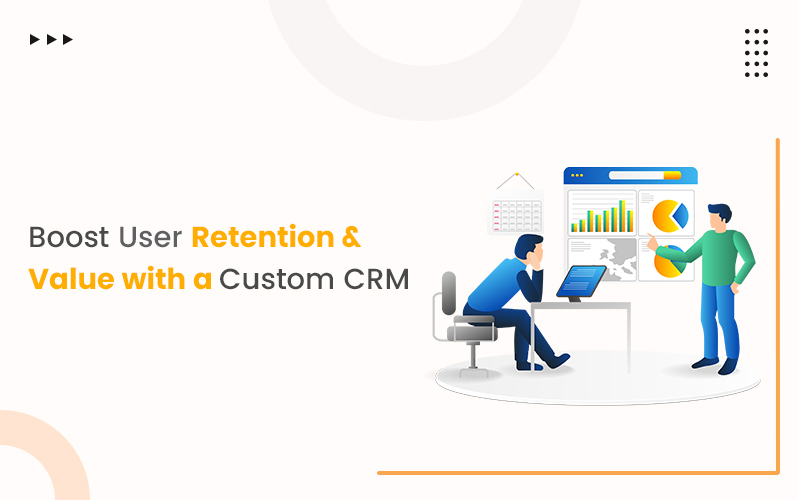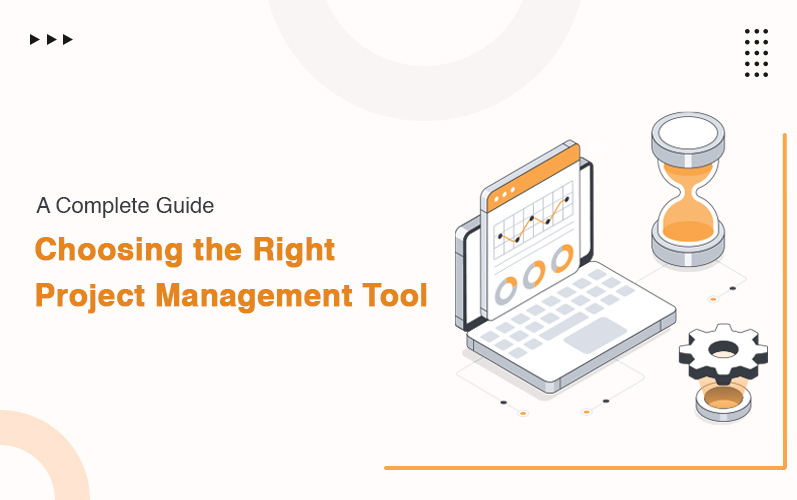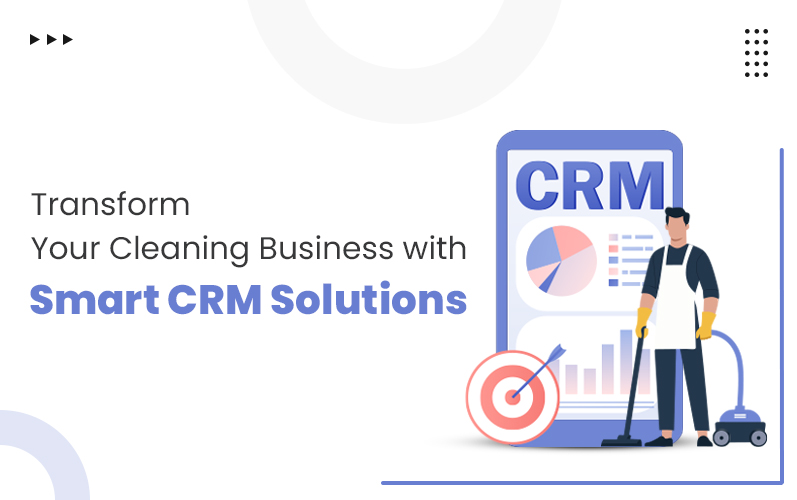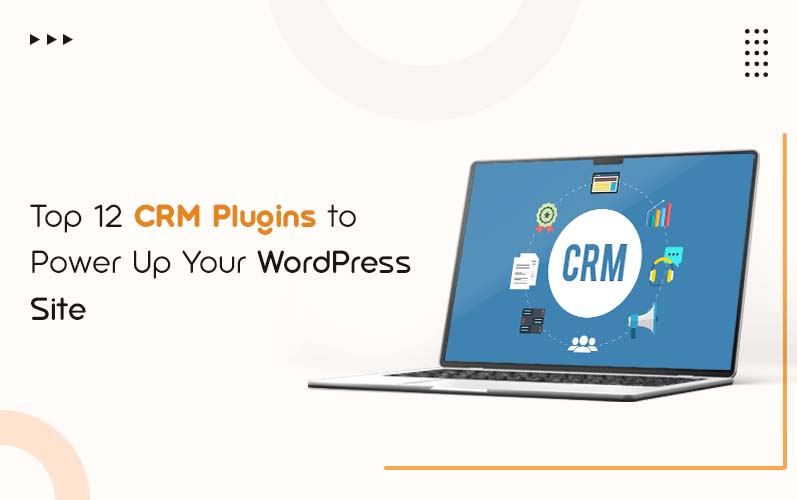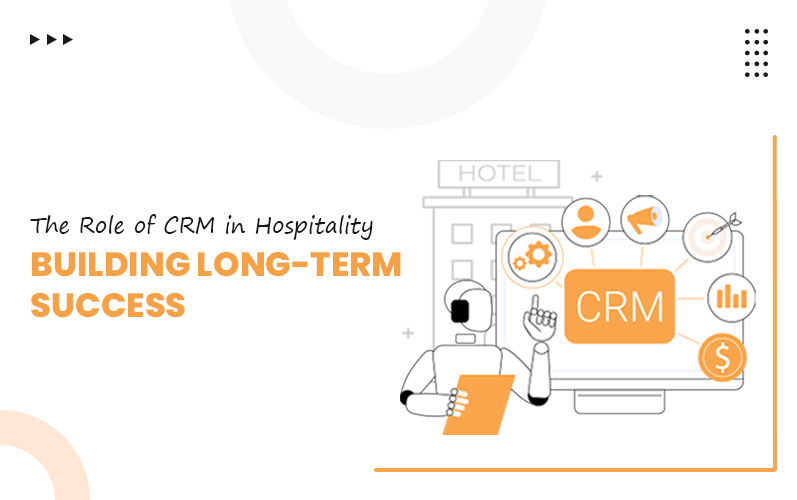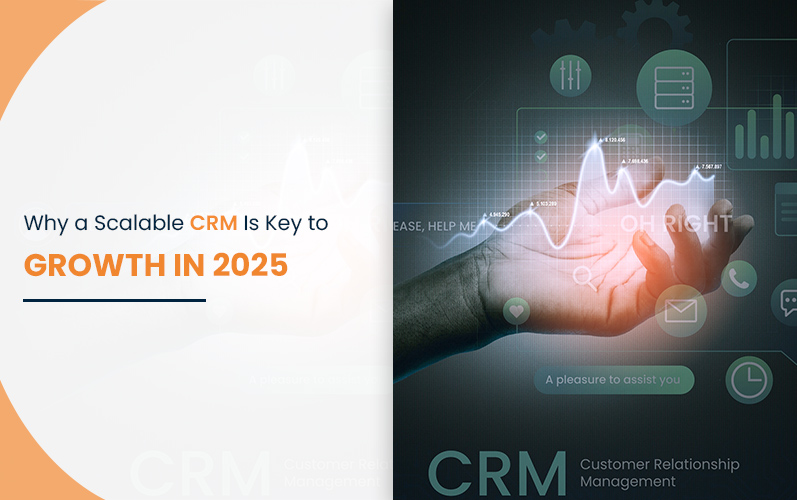Research shows that targeted marketing can lift conversions by up to 10%. With data-driven tools, businesses can effectively segment audiences and personalize content based on preferences. Automated messaging helps sustain engagement; studies reveal a 93% increase in retention through email automation. Timely follow-ups driven by behavior insights strengthen connections. Companies that use predictive analytics have seen a 20% increase in customer satisfaction. Loyalty programs can raise revenues by 5% to 10%, and trained teams can improve operational efficiency by 25%. Custom CRM software development empowers these capabilities at scale.
What is Customer Retention & Customer Lifetime Value (CLV)?
Customer retention and loyalty go beyond one-time transactions. They focus on building meaningful interactions that result in continued business. Loyal customers are more likely to refer others, leave positive reviews, and increase their purchase frequency. Retention is often more cost-effective than acquiring new customers and directly contributes to long-term profitability.
Customer Lifetime Value refers to the total revenue a business can expect from a single customer over their relationship. A custom CRM software development company can design tailored tools that accurately calculate CLV using behavioral data, purchase history, and engagement frequency, offering businesses insights for long-term planning.
How to Maximize Loyalty Through Strategic CRM
A CRM system allows companies to understand customer needs and preferences, enabling more relevant communication and value delivery. Through tracking purchase history, feedback, and engagement patterns, businesses can refine their customer approach, making clients feel valued and understood. This is where a robust CRM for customer retention makes your customers feel valued and strengthens relationships and foster brand loyalty. Companies can automate responses, personalize messaging, and proactively respond to customer needs, helping foster deeper relationships, through custom CRM software development. With a scalable CRM for business growth, organizations can ensure their systems evolve alongside customer demands, maintaining high engagement levels as the company expands.
Advantages of CRM Software in Customer Engagement & Retention
Customers tend to return to businesses that remember them. The link between CRM software customer relationship and loyalty is direct. The more personalized, timely, and seamless the interaction, the more likely a customer is to stay. CRMs log preferences, past queries, and purchase behavior, creating a smoother, more personalized repeat buying experience- boosting customer retention and increasing transaction volume over time. Understanding how CRM drives customer retention helps organizations prioritize meaningful engagement through these contributions:
Deeper Customer Insights
Track customer data to anticipate needs and personalize journeys. Enhanced data visibility improves segmentation and predictive targeting.
Tailored Customer Interactions:
Customize outreach for higher satisfaction and relevance. Personalized interactions boost customer trust and response rates.
Empowered Operations:
Use custom CRM software development to streamline internal processes and enhance user experience. Automation reduces manual tasks and improves team productivity.
Clear Communication Channels:
Ensure consistent, cross-platform conversations. Omnichannel access improves customer accessibility and satisfaction.
Enhanced Customer Service:
Respond faster and more accurately to queries. Efficient handling reduces complaints and fosters loyalty.
Flexible Scalability:
Leverage CRM for small business setups with growth-ready architecture. Easy scaling ensures system support for expanding customer bases.
5 CRM Tactics to Elevate Loyalty and Retention
Adopting the right tactics with your CRM system can substantially improve retention and long-term customer value:
Leverage Behavioral Segmentation:
Use CRM analytics to tailor outreach and identify high-value segments. Segment-specific strategies increase relevance and engagement.
Deploy Reward Systems:
Encourage engagement through point-based or tiered loyalty incentives. Loyalty programs reinforce repeated interactions and boost CLV.
Collaborate with CRM Experts:
Partner with professionals in custom CRM software development services for precision-built solutions. Specialized support accelerates implementation and long-term results. Expert insights future-proof your investment.
Automate Re-Engagement:
Trigger messages based on inactivity or buying patterns. Timely nudges reawaken interest and prevent churn.
Install Plugins for Flexibility:
Add CRM plugins for WordPress to expand features effortlessly. Plugin ecosystems allow niche customization without complex coding.
Enable Growth Adaptability:
Choose a scalable CRM for business growth to meet evolving demands. Modular design supports future upgrades and business expansion.
5 Emerging CRM Trends Shaping Retention
Staying ahead of trends helps businesses implement future-ready CRM systems that drive loyalty and satisfaction.
AI-Driven Personalization:
Enhance recommendations and timing precision. Smarter suggestions lead to better engagement and satisfaction. AI modeling sharpens predictive engagement.
Voice and Chat Assistants:
Automate service touchpoints. Real-time support boosts customer convenience and speed. Conversational AI enhances user accessibility.
Predictive Retention Models:
Identify at-risk customers before they churn. Early intervention strategies lower attrition rates significantly. Early intervention strategies lower attrition rates significantly.
Data Privacy Enhancements:
Build trust with stronger data security. Transparent practices increase customer confidence and retention.
Hybrid CRM Adaptation:
Integration of custom CRM software development and CRM for small business tools for advanced, accessible retention strategies. Combining innovation with simplicity broadens CRM adoption across business sizes.
Final Thoughts
Implementing a tailored CRM system is no longer a luxury, it is a necessity for brands aiming to boost loyalty and lifetime value. If you’re looking to improve retention and lifetime value, partnering with a custom CRM software development company is essential. With the right strategies and technology in place, businesses can ensure every customer feels recognized, valued, and engaged at every step of their journey.
The future of custom CRM software development lies in AI integration, omnichannel capability, and customer-first design. For expert guidance and custom CRM user retention strategies, The Tech Clouds (TTC) is your trusted partner. Their expertise in CRM design and implementation ensures your retention goals align perfectly with your customer experience strategies.


